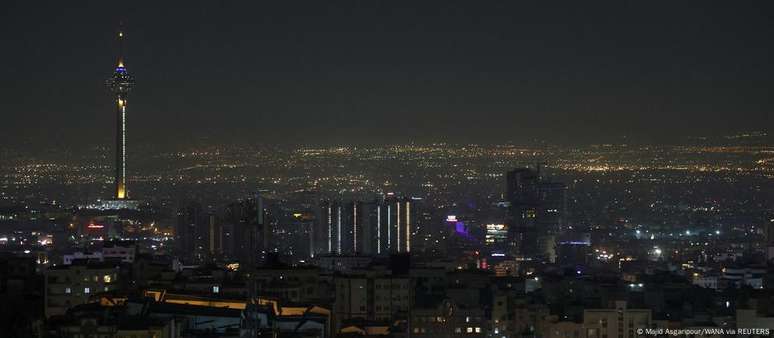The attacks are a response to Iran’s missile launch against Israel in early October and spare oil and nuclear installations. Tehran says damage was limited. Israel bombed Iran in a series of airstrikes on Saturday morning (10/26) and said it targeted military installations. Israel did not attack Iran’s oil infrastructure or nuclear facilities, US officials said.
The Israeli bombings were in retaliation for the Islamic Republic’s launch of ballistic missiles at Israel earlier this month.
Explosions were heard in the Iranian capital, Tehran, but the Iranian government said the attacks caused only limited damage. He later confirmed the deaths of two soldiers.
The Israeli military has warned Iran of a new wave of attacks. “We will be forced to respond. Our message is clear: all those who threaten the State of Israel and seek to drag the region into a wider conflict will pay a high price,” Israeli military spokesman Daniel Hagari said.
Closer to total war?
However, the Israeli attack risks pushing the two bitter enemies closer to all-out war at a time of growing violence in the Middle East, where Iranian-backed groups – including Hamas in Gaza and Hezbollah in Lebanon – are already at war with Israel.
On October 1, Iran attacked Israel with around 180 missiles, in response to the assassination of the leader of the Lebanese Shiite group Hezbollah, Hassan Nasrala, in Beirut, and the leader of the Palestinian militia Hamas, Ismael Haniyeh, in Tehran, in July .
This was Iran’s second attack against Israel, having reached Israeli territory last April through a series of missile and drone attacks.
Before dawn, Israel’s public broadcaster reported that three series of attacks had been completed and that the operation had been called off.
The Israeli attack, which lasted several hours, ended just before dawn in Tehran, with the Israeli military saying the target was “missile production facilities used to produce the missiles that Iran launched against the State of Israel in the last year.” They also said they hit surface-to-air missile sites and “additional Iranian air capabilities.” Israel offered no initial assessment of the damage caused.
The Iranian military confirmed that the attacks targeted military bases in Ilam, Khuzestan and Tehran provinces.
Nuclear and oil facilities were considered possible targets for Israel’s response to the October 1 Iranian attack, but in mid-October the US government obtained assurances from Israel that it would not strike these targets, which would represent an escalation more serious than the conflict. .
United States and Saudi Arabia call for restraint
The United States has warned of further retaliation, indicating that Saturday’s attacks should now end the direct firefight between Israel and Iran.
Saudi Arabia, Iran’s rival for regional hegemony, condemned attacks on military installations in Iran as a “violation of the country’s sovereignty” and international law.
Saudi Arabia called on all parties to exercise restraint, while calling on the international community to work to ease tension in the region.
Saudi Arabia and Iran have recently made efforts to establish closer ties after many years of strained relations due to regional rivalry, oil export policies and differing relationships with the West and the United States.
The United Arab Emirates also condemned the attacks on Iran and stressed the importance of exercising “maximum restraint” to avoid escalation.
as (AP, Lusa, Reuters, AFP, Efe)
Source: Terra
Rose James is a Gossipify movie and series reviewer known for her in-depth analysis and unique perspective on the latest releases. With a background in film studies, she provides engaging and informative reviews, and keeps readers up to date with industry trends and emerging talents.







